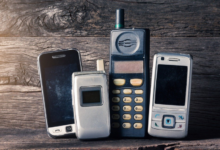Understanding the Use and Reliability of Lie Detector Tests in Canada

Introduction to Polygraph Tests
A polygraph test, commonly referred to as a lie detector test, is a procedure that measures and records several physiological indicators—such as blood pressure, pulse, respiration, and skin conductivity—while a person answers a series of questions. The underlying premise is that deceptive answers will produce physiological responses that can be distinguished from those associated with non-deceptive answers. These tests are conducted using a device called a polygraph, which has been used in various fields such as law enforcement, national security, and employment screening. In Canada, polygraph testing has been a subject of both practical use and ongoing debate, particularly regarding its admissibility in court and its accuracy in detecting deception.
The Mechanics Behind a Polygraph Test
A polygraph test involves attaching sensors to a person’s body to monitor physiological changes. The process typically begins with a pre-test interview, during which the examiner explains the procedure and establishes a baseline for the subject’s physiological responses. The subject is asked a series of simple questions with known answers to observe their natural response pattern. This is followed by the actual test, where relevant questions related to the matter under investigation are posed. The results are interpreted by the examiner to determine whether the subject’s responses indicate deception. It is important to note that a polygraph does not detect lies directly—it detects physical reactions that may indicate stress or anxiety associated with lying. However, this is also where much of the criticism lies, as nervousness or fear—regardless of guilt—can potentially trigger false positives.
See also: Why the Pinwheel Smartwatch is the Smart Choice for Your Child’s First Tech
Legal Standing of Lie Detector Tests in Canada
In Canada, the legal system has generally taken a skeptical stance on the use of polygraph tests, particularly in court proceedings. Polygraph results are not admissible as evidence in Canadian courts due to questions surrounding their reliability and the potential for prejudicing a jury. The Supreme Court of Canada has affirmed this position, maintaining that polygraph evidence does not meet the standards of scientific reliability required in legal settings. However, this does not mean the polygraph has no place in the Canadian justice system. Law enforcement agencies may still use lie detector tests during criminal investigations to guide their inquiries or to assess the credibility of suspects and witnesses. In such contexts, the polygraph can serve as a psychological tool rather than a definitive proof of guilt or innocence.
Polygraph Tests in Employment and Security Screening
Outside the courtroom, polygraph tests are sometimes used in Canada for employment purposes, especially in positions that require a high level of trust and security clearance. Federal security agencies such as the Canadian Security Intelligence Service (CSIS) and the Royal Canadian Mounted Police (RCMP) may use polygraph screening as part of their hiring and vetting processes. In these cases, the goal is not necessarily to catch a lie, but to encourage transparency and honesty from applicants. Still, even in employment settings, the use of polygraph testing must adhere to legal and ethical guidelines, including respecting the rights of the individual being tested and ensuring the test is administered voluntarily.
Debates Over Accuracy and Ethics
The reliability and ethics of polygraph testing remain contentious. Critics argue that the test’s accuracy can be compromised by various factors, including the subject’s emotional state, medical conditions, or the skill of the examiner. Studies have produced mixed results, with some suggesting accuracy rates as high as 90%, while others claim the polygraph is no more reliable than chance. Ethically, concerns are raised about the potential for coercion, misuse, and the psychological pressure placed on subjects. These issues have led many experts to call for stricter regulations and more scientific scrutiny of polygraph testing methodologies.
Location in Canada
- Vancouver – 525 W 8th Ave #800, Vancouver, BC V5Z 1C6, Canad,
- Calgary – 685 Centre St S, Calgary, AB T2G 5P6, Canada
- Ottawa – 116 Albert St Suites X, Ottawa, ON K1P 5G3, Canada
- Hamilton – 1601 King St. East, Hamilton, ON L8K 1T5
- Laval – 3221 Highway 440 West, suite 222, Laval, QC H7P 5P2
- Edmonton – First Edmonton Place, 10665 Jasper Ave 14th Floor, Edmonton, AB T5J 3S9, Canada
Conclusion
While polygraph tests continue to be used in Canada, particularly in investigative and security-related contexts, their role remains limited and controversial. The inability of the polygraph to consistently and reliably detect deception means it cannot be used as legal proof in courts, although it still holds value as an investigative tool. As technology advances and research into human behavior deepens, future developments may improve the reliability of lie detection methods. Until then, the polygraph will likely remain a supplemental tool—informative, but far from infallible.







